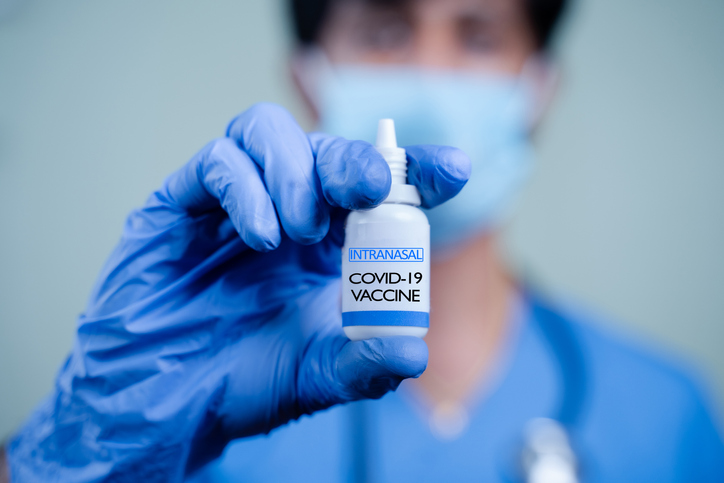The study used the same adenovirus vector vaccine which is already licensed for use by injection. The trial enrolled 30 previously unvaccinated participants to receive a primary dose of the intranasal vaccine (some with one dose and some with two); as well as 12 participants who received it as a booster dose following a standard primary injection schedule.
Oxford University researchers found that antigen-specific mucosal antibody responses to intranasal vaccination were detectable in a minority of participants, rarely exceeding levels seen after SARS-CoV-2 infection. Systemic responses to intranasal vaccination were typically weaker than after intramuscular vaccination with ChAdOx1 nCoV-19.
Advantages of a simple nasal spray
Funded by AstraZeneca, the new Oxford study is believed to be the first to have published data from administration of an adenovirus-vectored vaccine using a simple nasal spray.
As well as the advantages of needle-free administration, this nasal spray offered a more practical option for large-scale vaccine campaigns than a more complex nebuliser device – such as that used by a COVID-19 vaccine recently licensed in China – say the researchers.
Researchers are encouraged, however, by the acceptable safety profile of the vaccine: and believe their findings, alongside other licensed or candidate vaccines, can help build up a body of knowledge.
‘The nasal spray did not perform as well in this study as we had hoped,” said Associate Professor Sandy Douglas, Chief Investigator of the trial at the Jenner Institute, University of Oxford.
